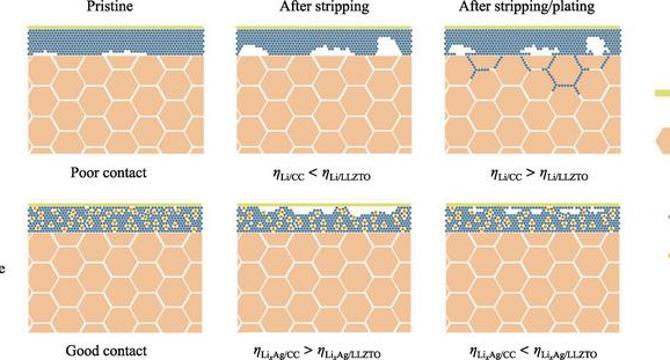Bioengineer
1d
173

Image Credit: Bioengineer
Transformative LixAg Alloy Pioneers a New Era in Solid-State Battery Innovation
- The Huazhong University of Science and Technology introduces a LixAg alloy to enhance solid-state battery technology.
- This alloy addresses the unstable interface issue between lithium metal anodes and solid electrolytes in all-solid-state lithium metal batteries (ASSLMBs).
- By utilizing the LixAg alloy, researchers aim to improve battery safety, energy density, and performance.
- The alloy facilitates better lithium ion diffusion kinetics, reducing dendrite formation and enhancing battery longevity.
- Experimental cells with the LixAg alloy showed stability for 1,200 hours at a current density of 0.2 mA/cm², surpassing traditional lithium metal anodes.
- The alloy's physical properties, including rapid lithium diffusion and composition flexibility, contribute to its efficacy in solid-state batteries.
- Notably, the LixAg alloy aids in preserving the electrolyte-anode interface, improving power output and energy efficiency.
- Research findings suggest potential commercialization and application in electric vehicles for extended ranges and rapid charging.
- This breakthrough opens avenues for future research on alloy phases for garnet-based solid-state batteries, driving progress in the field.
- The transformative potential of the LixAg alloy signifies a crucial step towards advancing solid-state battery technology for various energy storage applications.
Read Full Article
10 Likes
For uninterrupted reading, download the app